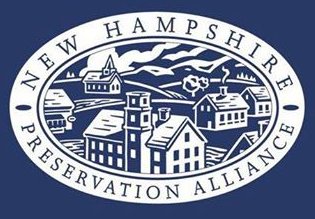Donald Hall's Preservation Legacy
The N.H. Preservation Alliance is very enthusiastic about the recent “save” by preservationists to steward pieces of Jane Kenyon and Don Hall’s Eagle Pond Farm legacy. Please contact leaders Mary Lyn Ray or Lynne Emerson Monroe via donandjaneproject@gmail.com with any questions or suggestions. The tribute below was posted by the Preservation Alliance following Donald Hall’s death on June 23, 2018. Here’s a recent Boston Globe story. Donations for the preservation effort can be sent to the Preservation Alliance PO Box 268, Concord, NH 03302.
What a legacy Donald Hall left for New Hampshire citizens and readers all over the world! The award-winning writer of prose and poetry died this past week at age 89. Hall was an incorporator of the N.H. Preservation Alliance when it was formed over 30 years ago, and we think his decades of writing before -- and since -- supports and inspires preservation activity.
Hall's Eagle Pond Farm in Wilmot.
Hall’s observations about his adopted state (he said, “I was created to love New Hampshire”) were based off of characters he met in Wilmot, where he resided, and nearby Danbury and Andover. In his collection of essays, Here at Eagle Pond, Hall wrote, “In New Hampshire the state supper is beans and franks, and every recipe begins with salt pork, Campbell’s cream of mushroom, and Miracle Whip” and “In New Hampshire convenience stores sell Fluff, Wonder Bread, Moxie, and shoes with blue canvas tops.”
His realistic settings connect you to special buildings in addition to natural landscapes. When you read Lucy's Christmas, you feel like you’re visiting the white, steepled South Danbury church for the annual pageant. (It still hosts the annual Christmas party and lots of other activities too.)
Hall's themes of practicality, frugality and continuity shine through in his work. The title of his recollections of summers on a New England farm, A String too Short to be Saved, describes the hand-written label on a box of short strings. In his 1977 poem Oxcart Man, Hall describes how a farmer loads his potatoes into a cart and walks beside his ox to market, where he sells the potatoes. Then he sells the cart, ox, harness and yoke and, we imagine, walks home and starts again.
He lamented the loss of people and loss of landscape – burnt houses, new development, and the conversion of special places into the indistinguishable. “Nostalgia without history is a decorative fraud,” he wrote. This affinity for place was borne from his c. 1806 house, purchased by his great-grandfather in the 1860s. In memoir and fiction, he described this place that served as his boyhood retreat and eventually his residence until his passing. He wrote in the same first-floor room in which he slept and first began writing poems as a boy. He seemed to love the continuity of use, the layers of people’s and building’s history, and we do too.
Here are some ideas of ways to honor this great artist:
· Read a poem or story of his (or his wife Jane Kenyon, another incredible voice for life in New Hampshire) for yourself or to a child.
· Think about what rural New Hampshire means to you on a scenic 24-mile drive through his town of Wilmot along New Hampshire Route 4A or Rt. 4 between Lebanon and Andover. (Get some coffee at the preservation-award winning Lucky’s Coffee Garage in Lebanon after your drive.)
· Support a local preservation project or the Preservation Alliance so we can enjoy more preservation and less lamentation.


